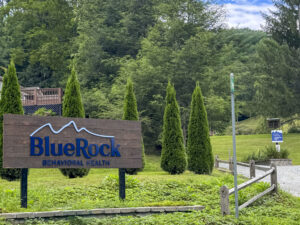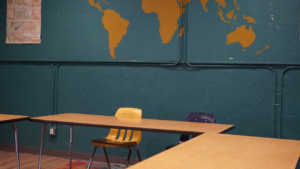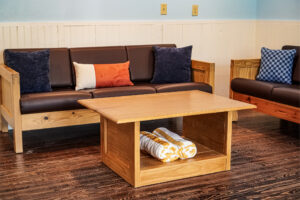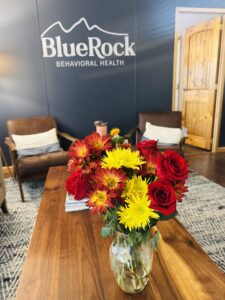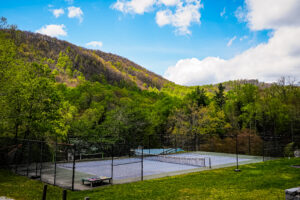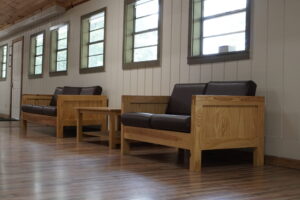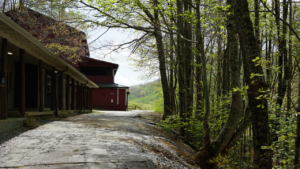For parents watching their teenager struggle with mental or behavioral health challenges, finding appropriate help can feel overwhelmingly complex. North Carolina offers a spectrum of treatment options, but determining which level of care will best serve your family requires careful consideration. At BlueRock Behavioral Health, located on our 140-acre campus in the Blue Ridge Mountains near Bat Cave, NC, we understand this journey intimately.
Understanding the Continuum of Care
Behavioral health services exist on a continuum, with increasing levels of structure and support. Finding the right fit means matching your teen’s needs with the appropriate level of intervention:
Outpatient Services: Weekly therapy sessions with a counselor or psychologist, typically 1-2 hours per week. This level works well for teens with good support systems and mild to moderate challenges that don’t significantly impact daily functioning.
Intensive Outpatient Programs (IOPs): Structured treatment several days per week for a few hours each day, often including group therapy. These programs support teens with more significant needs while allowing them to remain at home and in school.
Partial Hospitalization Programs (PHPs): Daily treatment (usually 5-6 hours) with a return home each evening. This level serves teens needing intensive daily support but who can safely function at home overnight.
Residential Treatment: 24-hour therapeutic environment where teens live and receive consistent treatment. Residential programs like BlueRock serve adolescents whose challenges require removal from current environments to create meaningful change.
Acute Psychiatric Hospitalization: Short-term (typically 3-10 days) intensive medical and psychiatric stabilization for teens in immediate crisis or danger. These programs focus on safety and crisis resolution rather than longer-term therapeutic work.
When Is Residential Treatment Appropriate?
Considering residential treatment is a significant decision. These indicators suggest when this level of care might be necessary:
- Outpatient therapy has been ineffective despite genuine effort
- School performance has declined dramatically
- Home conflicts have become unmanageable or unsafe
- Risky behaviors continue despite interventions
- Your teen needs space from negative peer influences
- Mental health symptoms significantly impact daily functioning
- Your family needs respite to reset unhealthy patterns

Key Questions to Ask When Evaluating Programs
Whether considering BlueRock or another treatment option, these questions help evaluate program fit:
Treatment Approach
- What theoretical framework guides treatment?
- How is treatment individualized?
- What role do family members play in the treatment process?
- How are behavioral expectations enforced?
Staffing and Qualifications
- What is the ratio of staff to teens?
- What credentials do direct care staff hold?
- What clinical qualifications do therapists possess?
- How is staff retention and consistency maintained?
Academic Continuity
- How will my teen continue their education during treatment?
- Are teachers accredited and is the school program recognized?
- How are individual learning needs accommodated?
Daily Living
- What does a typical day look like?
- How are physical health and recreation prioritized?
- What communication protocols exist between teens and families?
Transition Planning
- How is discharge planning approached?
- What support exists for the transition home?
- How are aftercare recommendations determined?
The BlueRock Residential Difference
As a Level 2 residential program serving adolescents ages 12-17, BlueRock offers structured therapeutic support while maintaining a nurturing, relationship-focused environment. Our program balances several key elements:
Relationship-Based Approach: Unlike behavior modification programs that rely primarily on external reward systems, our treatment model centers on authentic connection as the vehicle for change. We believe teens change for people they trust, not for programs.
Fully Accredited Academics: Our academic program ensures educational progress continues uninterrupted, with state-accredited teachers providing individualized instruction that accounts for different learning styles and needs.
Experiential Methodology: We engage teens through active, hands-on experiences that build skills, confidence, and insight. From outdoor adventures in our Blue Ridge Mountain setting to creative arts and service projects, teens learn through doing rather than just talking.
Duration That Allows Real Change: Our program length (typically 90-180 days) provides the time necessary for sustainable transformation. This timeframe allows teens to move beyond initial resistance, develop trust, practice new skills, and prepare thoroughly for transition home.
Family Partnership: Families aren’t just visitors in the treatment process—they’re active participants. Regular family therapy, parent workshops, and consistent communication ensure that healing extends to the entire family system.
Addressing Common Concerns About Residential Placement
Many parents worry about sending their teen to a residential program. These concerns are valid and deserve thoughtful consideration:
“Will my child feel abandoned?” While adjustment periods are normal, teens often report feeling relieved to be in an environment specifically designed to help them. Our relationship-based approach ensures your teen forms meaningful connections with caring adults who are invested in their growth.
“How will we maintain our relationship during treatment?” Regular phone calls, family therapy sessions, and campus visits maintain connection throughout treatment. Many families report that the quality of their relationship actually improves with therapeutic support and structural boundaries.
“Will residential treatment stigmatize my teen?” We approach treatment as a positive intervention rather than a punishment. Teens learn that seeking help demonstrates strength, not weakness. Many graduates proudly share their growth experience with others after completing the program.
Making This Important Decision
Finding the right fit takes careful consideration of your teen’s specific needs, your family dynamics, and the various treatment options available. The most effective placement is one that aligns with your family’s values while providing the structure and support your teen requires.
At BlueRock Behavioral Health, located at 41 Heros Wy, Hendersonville, NC 28792, we’re committed to transparency throughout the exploration process. We understand this is one of the most significant decisions you’ll make for your family, and we’re here to help you navigate it with confidence and clarity.
To discuss whether our NC behavioral health program might be the right fit for your teen, call us today at 828-671-3003 for a confidential conversation about your family’s needs.


